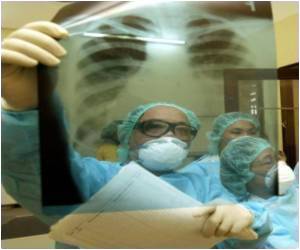Researchers have developed a novel technique to detect genetic variations associated with cancer.

"These genetic variations can give us an idea about how humans respond to pathogens (microorganismic infectious agents like virus, bacterium, prion or fungus that cause diseases), chemicals, drugs, vaccines and other agents," IACS's associate professor in biological chemistry, Rupa Mukhopadhyay, told IANS.
Detection of these genetic variations can help predict one's susceptibility to diseases. Identification of these abnormalities is often done by using DNA probe based biosensor technologies.
DNA is the double stranded helically twisted molecule that serves as the hereditary unit of life.
A biosensor is a device that uses a living organism or biological molecules, especially enzymes or antibodies, to detect the presence of chemicals.
However, according to Mukhopadhyay, the DNA-based biosensors which are in use have certain limitations.
Advertisement
"We have proposed in a recent work that LNA, which is a synthetic analogue of DNA, can be a much better probe in surface-based DNA detection techniques," said Mukhopadhyay.
Advertisement
Source-IANS










